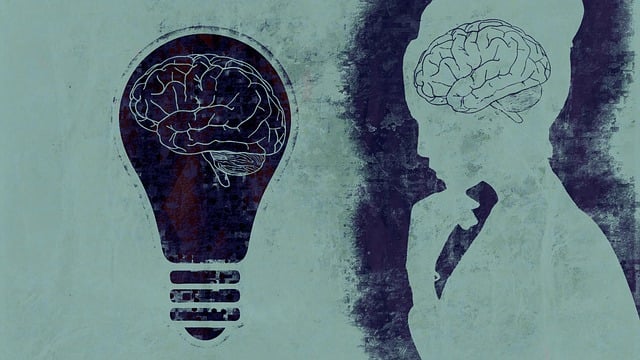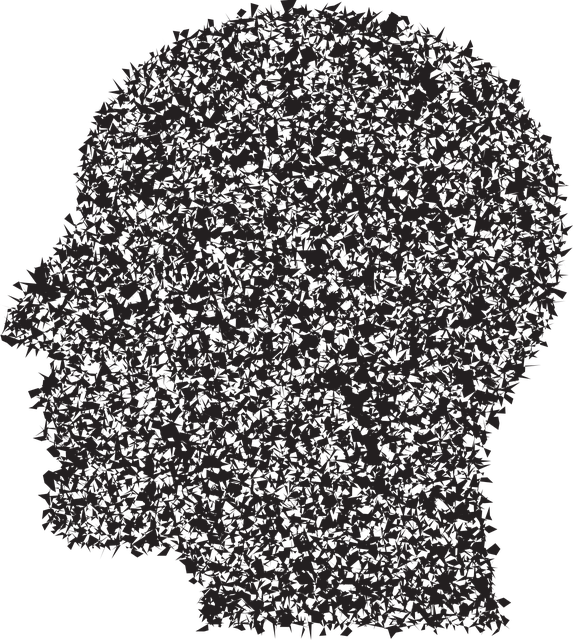The current media portrayal of mental illness, particularly anger management issues, is often stereotypical and inaccurate, contributing to public stigma. In response, there's a growing push for authentic storytelling in places like Highlands Ranch, emphasizing diverse representations through podcast series and expert consultations. This shift aims to foster empathy and open conversations about mental wellness, including anger management therapy solutions. These initiatives are vital steps towards creating an inclusive media landscape reflecting various mental health experiences, with models like Highlands Ranch Anger Management Therapy leading the way by offering holistic therapeutic approaches, demystifying the process, and inspiring hope while reducing stigma. Media and healthcare professionals should collaborate to ensure responsible storytelling that educates audiences about mental health signs, symptoms, and coping mechanisms.
Mental illness representation in media is a critical topic that significantly influences public understanding and perception. This article explores the current state of mental health portrayal, highlighting its impact on society’s stigma and misconceptions. We delve into strategies for improvement, issuing a call to action for media and healthcare professionals alike. A case study featuring Highlands Ranch Anger Management Therapy demonstrates an effective approach, offering hope and accurate insights into managing mental health issues.
- Understanding Mental Illness Representation in Media: The Current State
- The Impact of Accurate Depictions on Public Perception
- Strategies for Improvement: A Call to Action for Media and Healthcare Professionals
- Highlands Ranch Anger Management Therapy: A Case Study in Effective Media Representation
Understanding Mental Illness Representation in Media: The Current State

The current state of mental illness representation in media is a complex issue that requires careful consideration. Media outlets often perpetuate stereotypes and provide an inaccurate portrayal of individuals living with mental health conditions, such as anger management issues. These representations can significantly impact public understanding and contribute to the stigma surrounding mental wellness. In Highlands Ranch or any urban center, Anger Management Therapy has become a sought-after solution for those struggling with rage-related disorders.
In response to these challenges, there is a growing movement towards more authentic and nuanced storytelling. This shift includes diversifying representation, consulting with experts in mental health fields, and promoting educational content. By integrating real-life experiences into Mental Wellness Podcast Series Production, media can foster empathy and encourage open conversations about mood management and stress management workshops. Such initiatives are essential steps toward creating a more inclusive narrative that reflects the diversity of mental illness.
The Impact of Accurate Depictions on Public Perception

Media representation plays a pivotal role in shaping public understanding and perceptions about mental illness. Accurate and nuanced portrayals can challenge stereotypes, reduce stigma, and foster empathy among viewers. When media showcases individuals with mental health struggles as complex characters with depth and humanity, it sends a powerful message to the audience. This, in turn, encourages a more compassionate and supportive societal attitude towards those seeking help for their emotional or psychological well-being.
For instance, effective storytelling can highlight the diverse range of symptoms and experiences associated with various mental health conditions. Portraying characters undergoing therapy, learning coping mechanisms, and navigating mood management techniques (such as those offered by Highlands Ranch Anger Management Therapy) can provide valuable insights to viewers. This approach not only educates but also encourages help-seeking behaviors, especially when combined with Crisis Intervention Guidance and Emotional Intelligence initiatives. By presenting realistic and empathetic representations, media has the potential to revolutionize public discourse on mental health.
Strategies for Improvement: A Call to Action for Media and Healthcare Professionals

Media and healthcare professionals play a pivotal role in shaping public understanding of mental illness. To foster accurate representation and promote positive change, several strategies should be implemented. Firstly, media outlets must prioritize authenticity in their storytelling by consulting with experts, including therapists like those offering Highlands Ranch Anger Management Therapy. This ensures that narratives are informed, empathetic, and avoid stereotypes. Encouraging diverse storylines that reflect the breadth of mental health experiences can also challenge norms and encourage empathy among viewers.
Additionally, integrating emotional healing processes and depression prevention initiatives into media content can subtly educate audiences about signs, symptoms, and coping mechanisms. By promoting emotional well-being promotion techniques, media can contribute to a culture that openly discusses mental health without stigma. Healthcare professionals should actively engage with the media, offering insights and expertise to shape responsible storytelling, ensuring that representation is not only accurate but also empowering for those facing similar challenges.
Highlands Ranch Anger Management Therapy: A Case Study in Effective Media Representation

Highlands Ranch Anger Management Therapy serves as a shining example of effective mental illness representation in media. By showcasing a comprehensive program that combines cognitive-behavioral therapy, mindfulness meditation, and self-care routine development for better mental health, this initiative challenges stereotypical portrayals often found in mainstream media. The therapy focuses on helping individuals build inner strength, offering practical tools to manage anger and other emotional challenges. Through real-life narratives, it demystifies the therapeutic process, providing a relatable and hopeful perspective for viewers struggling with similar issues.
This case study highlights the power of positive representation, demonstrating that mental health issues are not just storylines but real concerns deserving of thoughtful, nuanced portrayal. By featuring successful outcomes and emphasizing the importance of self-care and inner strength development, Highlands Ranch Anger Management Therapy inspires hope and encourages individuals to seek help without stigma. Such initiatives play a vital role in fostering an understanding and supportive society for those navigating mental health challenges.
Media representation of mental illness plays a pivotal role in shaping public understanding. As highlighted by the case study on Highlands Ranch Anger Management Therapy, accurate and empathetic portrayals can significantly impact perception and foster a more supportive society. By implementing the strategies proposed for improvement, media outlets and healthcare professionals can work together to challenge stereotypes, promote awareness, and ensure that mental health issues are represented with nuance and integrity. This collective effort is essential to creating an environment where individuals struggling with mental illness feel seen, heard, and supported.














